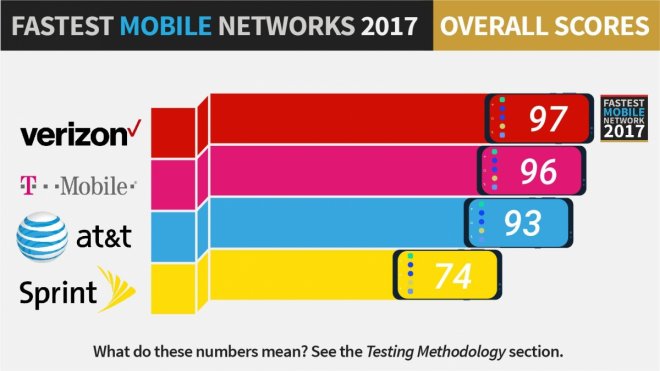By a very narrow margin, Verizon won this year's Fastest Mobile Networks race, conducted for the eighth consecutive year by PCMag. As per the publication, it was the closest race of the networks in America ever.

Verizon turned out to be the most reliable network and it also offered consistent high-speed network across the cities in America.
However, it became evident that along with Verizon, AT&T and T-Mobile are also pushing its boundaries to improve their performances. According to PCMag, "Depending on where you live, they're all great choices. While Verizon is the fastest mobile network overall, AT&T has the fastest average download speeds in the nation, and T-Mobile can cost less than Verizon while offering very close to the same performance."
PCMag reached the conclusion by simply going to all the cities and running speed tests everywhere using a customized version of Ookla's Speedtest.net software. They used the Samsung Galaxy S8 smartphones for the test.
The publication collated the data received from around 124,000 data points, and then balanced downloads, uploads, latency, and reliability to create the ultimate Speed Score.

The result shows that Verizon, AT&T, and T-Mobile all offer strong networks but none them individually offers a strong connection all over the country. For example, "AT&T is weak in New York City but strong in Indianapolis, while T-Mobile is the other way around. So it's important to check our individual city pages if you're making a carrier choice."
Sprint's performance, on the other hand, was quite disappointing, considering the fact that they delivered a magnificent performance between 2015 and 1026. "While we saw the same spectacular peak speeds on Sprint that we got on the other carriers, they were far less consistent; Sprint's speeds would shoot up and then plummet within cities more often than other carriers, creating lower averages," said PCMag.









